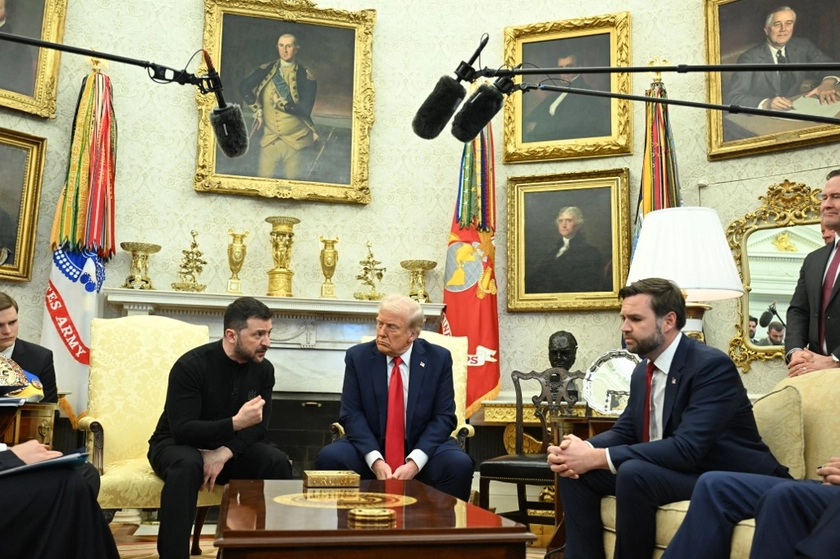Ukraine plans to kickstart its microchip industry, starting with automated microcircuit designs and later transitioning to the production of up to 50,000 chips per month, said an official at the Global Innovative Vision conference.
As reported by NV Business, Deputy Minister of Digital Transformation for European Integration, Valeriya Ionan, said the country aimed to create a network of fabless companies (a company without its own factory that specializes in microchip design) for automated microcircuit design, which would allow Ukraine to gain a foothold in the international market.
JOIN US ON TELEGRAM
Follow our coverage of the war on the @Kyivpost_official.
Production could reach 50,000 chips per month three years after the project’s launch, according to Ionan, but she did not specify when the project would start, nor whether the factories producing the chips would be located in Ukraine.
“With this, we will meet the needs of the domestic market and create a base for exports,” she said.
Deputy Minister of Digital Transformation, Mykhailo Fedorov, said the Ministry of Digital Affairs plans to develop and present the first Ukrainian chip in 2024 without providing further details.
Setting up manufacturing facilities could take years but, if successful, could secure Ukraine’s supply chain for domestic weapons production as it aims to bolster its domestic defense capabilities in what could be a protracted war, as microprocessors are an essential component in modern electronic devices and weapons.

Lessons From the World’s First Full-Scale Cyberwar
The announcement also corresponds to Ukraine’s recent initiatives to bolster its domestic defense manufacturing capabilities, with the government certifying a dozen domestically produced weapons including missiles and unmanned vehicles, all of which require an array of microchips.
Securing domestic microchip production – or at least their design – could be a significant step towards strengthening the supply chain.
While Ukraine possesses the basic requirements to develop a semiconductor industry as it has the talent capable of designing chips, manufacturing them domestically would prove to be a considerable challenge.
According to the Intel website, building a semiconductor factory could take up to three years, cost $10 billion and 6,000 construction workers, plus millions of dollars’ worth of specialized equipment to compete with industry giants that already possess the expertise.
Money aside, technological complexity also remains an issue.
Leading semiconductor manufacturers such as the Taiwan Semiconductor Manufacturing Company (TSMC) are able to produce 2 nanometer chips – the number denotes the size of the transistor, which in turn determines the power efficiency and processing speed.
China, following the US export ban, aimed to manufacture its own chips. But despite the resources available to them, the best it could currently achieve was Huawei’s 5 nanometer chips found in its laptops, leading some experts to continue to question China’s ability to manufacture them at scale.
This would also go some way to explaining the reliance of Russia on foreign electronics in its weapons as it lacks its own mature domestic semiconductor industry.
While developing a semiconductor industry would be an uphill battle for Ukraine, it is by no means impossible.
Melexis, a fabless semiconductor companies operating in Ukraine, involves its Ukrainian staff in defining, designing, creating the layout, and testing of microchips.
It sources talent from local universities, which offer courses and degrees in electrical engineering and dedicated microelectronics training – in fact, when Melexis-Ukraine was founded in 2000 it was initially located inside Kyiv’s Polytechnic Institute.
Even though engineers capable of designing microchips do exist in Ukraine, more resources and development are needed to grow the industry domestically.
“Over the past 30 years, microelectronics was not developed in the country. A lot of progress has been made in this area at the international level, and we need to catch up,” said the President of the National Academy of Sciences of Ukraine Anatolii Zahorodniy in an interview posted on YouTube.
With that in mind, Ukraine’s new initiative could mean that the 50,000 expected production capacity is limited to less sophisticated chips, and the need for a detailed plan from the government to understand the final scope of the project.
You can also highlight the text and press Ctrl + Enter











